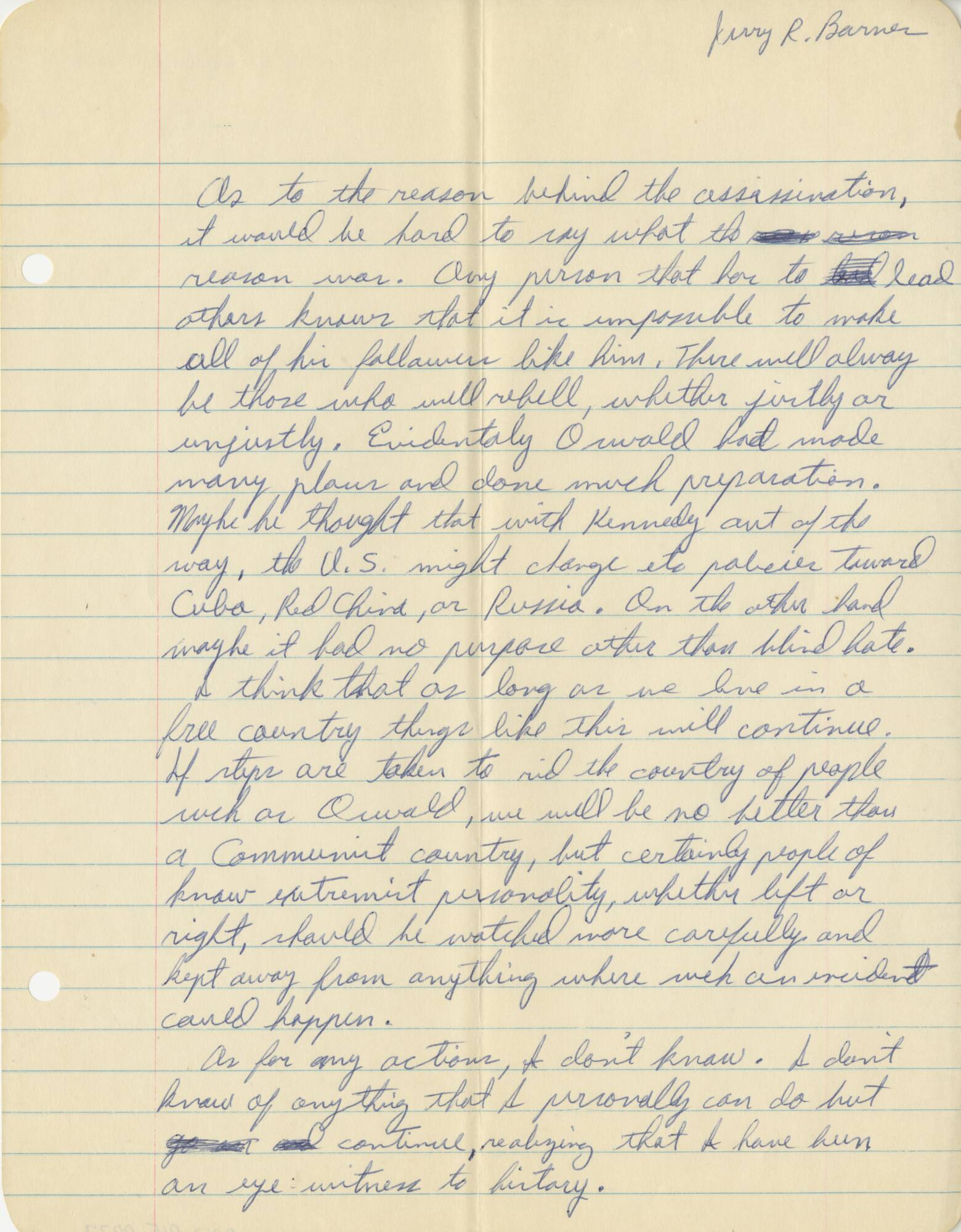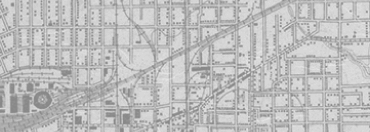


Back
Student essay handwritten a few days after the Kennedy assassination
Handwritten student essay by Jerry R. Barner from November 26-27, 1963. Barner was a student at Arlington State College (now the University of Texas at Arlington). His professor, Duane Keilstrup, gave his students a voluntary assignment, asking them to write down their thoughts in the days following President Kennedy's assassination.Barner writes that he believes that any person who becomes a leader will have to put up with people who don't like him and that these people may "justly or unjustly" rebel against his leadership. Barner questions if Oswald may have assassinated the president so that the "U.S. might change its policies toward Cuba, Red China, or Russia" but then he wonders if the assassination happened out of "blind hate."
Student essay handwritten a few days after the Kennedy assassination
11/26/1963 - 11/27/1963
Paper
10 1/2 × 8 in. (26.7 × 20.3 cm)
Duane Keilstrup Family Collection/The Sixth Floor Museum at Dealey Plaza
2013.015.0027
Dr. Duane Keilstrup taught at Arlington State College (later the University of Texas at Arlington) for more than three decades. He and his wife Glenda, who was also at UTA on November 22, 1963, recorded a joint oral history with the Museum on February 1, 2013. At that time they donated some sixty-five essays about the Kennedy assassination, written as a voluntary class assignment by Keilstrup's students within days of the president's death. Today these immediate firsthand recollections provide students and researchers with valuable insight into the mood of local college students and the political atmosphere of the time. - Stephen Fagin, Associate Curator

Student essay handwritten a few days after the Kennedy assassination
Handwritten student essay by Jerry R. Barner from November 26-27, 1963. Barner was a student at Arlington State College (now the University of Texas at Arlington). His professor, Duane Keilstrup, gave his students a voluntary assignment, asking them to write down their thoughts in the days following President Kennedy's assassination.Barner writes that he believes that any person who becomes a leader will have to put up with people who don't like him and that these people may "justly or unjustly" rebel against his leadership. Barner questions if Oswald may have assassinated the president so that the "U.S. might change its policies toward Cuba, Red China, or Russia" but then he wonders if the assassination happened out of "blind hate."
Student essay handwritten a few days after the Kennedy assassination
11/26/1963 - 11/27/1963
Assassination
Student
Russia
China
Cuba
Oswald, Lee Harvey
University of Texas at Arlington
Arlington State College
Arlington
Paper
10 1/2 × 8 in. (26.7 × 20.3 cm)
Duane Keilstrup Family Collection/The Sixth Floor Museum at Dealey Plaza
2013.015.0027
Dr. Duane Keilstrup taught at Arlington State College (later the University of Texas at Arlington) for more than three decades. He and his wife Glenda, who was also at UTA on November 22, 1963, recorded a joint oral history with the Museum on February 1, 2013. At that time they donated some sixty-five essays about the Kennedy assassination, written as a voluntary class assignment by Keilstrup's students within days of the president's death. Today these immediate firsthand recollections provide students and researchers with valuable insight into the mood of local college students and the political atmosphere of the time. - Stephen Fagin, Associate Curator









